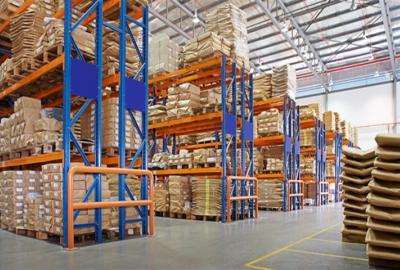what is facilities management?
Also known as FM, there are two major types of facilities management, Hard FM and Soft FM. Facilities management is necessary both for public organisations like schools and the government, and for private organisations like businesses and nonprofits. So you’re likely to find FM jobs across a wide variety of locations. By combing many different disciplines an FM job maintains and balances the supply and demand of services, supplies, and equipment by coordinating people, place, process, and technology - IFMA (International Facilities Management Association).
what is hard FM?
Hard FM can include fire safety, plumbing, structural, and elevator maintenance jobs with services relating to the actual structures and systems that make a facility work.
what is soft FM?
Soft FM jobs include work such as pest control, cleaning, grounds maintenance, and security. These may overlap with property management careers.
strategic and operational.
In each type of facilities management there are two levels of operation:
- Strategic and tactical roles work with other departments, clients, and customers to help them understand the impact of their decisions on every other part of the facility and its ability to run. They’re like the foreman of a construction crew.
- Operational roles carry out tasks with a highly-trained level of skill and on-the-ground knowledge in their specific vertical to keep employees alive and safe.
facilities management jobs.
If you don’t have the educational requirements of a high-level role you can find “in-the-field” jobs as long as you have a strong degree of technical training.
With a college degree or similar, there are many “bird’s eye” roles available to oversee and coordinate rising to higher-paid roles with extensive experience. You can see the pay range of FM jobs here.
cleaning jobs.
This is what often comes first to mind when thinking of FM. Janitorial and groundskeeping roles are vital for the aesthetic value of a facility or property, which affects property value and the morale of those working at and visiting the site. Maintaining clean environments, rubbish disposal, and plumbing also promotes a healthy work environment. More specialised roles can sometimes be outsourced to specific vendors, like window washers for example.
Higher-up roles may coordinate these efforts to maximize staff’s cleaning time, prevent repeated sweeps of the same areas, and work with management of other staff to create procedures that minimise excess work.
hardware inspection & maintenance.
If there’s anything that runs “passively” in an office, there’s a facilities management team behind it, from checking up on smoke detectors to managing a 50-floor elevator system. This role relies on routine inspections and performing prompt repairs or speaking with vendors to ensure the work is done. Aside from preventing office heatwaves from faulty AC, the true value of this work is making equipment last longer and reduce business costs. To ensure smooth operations of different systems may require knowledge of facilities management planning software.
EHS: environment, health, and safety.
A growing trend today is creating sustainable, environmentally-friendly workplaces that also promote safe and healthy working conditions. For example, ensuring a reasonable carbon footprint of a facility along with sufficiently clean air quality for workers. This job is vital for the future of the world as well as helping companies avoid lawsuits, insurance claims, public scandals, and ultimately being shut down for violations.
fire safety.
The number one cause of fires is by humans, so you can be the number one way to stop them too. In the event of a fire, this team helps contain and put it out, and also moves people in the building to safety. It involves strategic planning of escape routes and designating fire wardens on each floor, keeping up to date maps, working smoke detectors and fire extinguishers, and even small things like making sure-fire escape doors open and lock properly. The role involves frequent inspections of supplies, plans and routes, the training of non-expert staff, and above all, vigilance.
security services.
Manned security includes inspecting central alarm systems, preventing malfunctioning triggers on doors, tracking and repairing key cards, maintaining security camera operation and collecting its footage, and creating standards for employees to follow. In retail facilities, this includes protecting merchandise and their security tags. Even if a contracting security agency is employed for manned security, a facilities manager may liaise with them and provide plans of operation.
operational.
Primarily in schools and offices, there can be a large number of operational requirements to function efficiently. Conference rooms need to be scheduled for use, coffee machines maintained and food deliveries organised. On top of this there is often a help desk to receive, queue, and resolve issues with any number of vital office resources. This can include software issues requiring IT staff, to mechanical problems such as dead bulbs or jammed copy machines. Coordinating this assistance and rendering it in a timely manner not only ensures a productive staff, it also improves morale.
FM and maintenance salaries.
Many factors affect pay in FM roles from experience and education to the role requirements and size of building/budget. More budget = more responsibility.
The average salary in FM ranges from £23k per year for a cleaner to £46k per year for an Engineering Manager.
Here are some average salaries available:
Cleaner - £23,000
Fabricator - £25,000
Fire Engineer - £29,000
HVAC technitian - £30,000
Electrician - £30,000
Mobile Developer - £30,000
Catering Manager - £33,000
Gas Engineer - £36,000
Facilities Manager - £37,000
Building Engineer - £40,000
If you're not getting near the average, it might be time you upgraded to a better job...
fm & maintenance articles.
-
 17 October 2019
17 October 2019maintenance engineering cv writing tips.
-
 21 September 2019
21 September 2019to facility and beyond: the future of fm.
-
02 February 2019
property and FM job interview tips.
-
01 January 2019
facilities manager job description.
-
 01 January 2019
01 January 2019what do fm maintenance professionals do?
-
08 May 2018
maintenance engineer job description.



